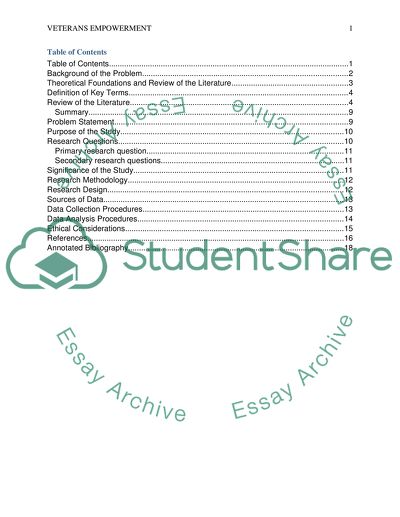Cite this document
(“Impact of Education on Veterans Empowerment to Enhance Careers and Job Essay”, n.d.)
Impact of Education on Veterans Empowerment to Enhance Careers and Job Essay. Retrieved from https://studentshare.org/education/1483958-impact-of-education-on-veterans-empowerment-to-enhance-careers-and-job-satisfaction
Impact of Education on Veterans Empowerment to Enhance Careers and Job Essay. Retrieved from https://studentshare.org/education/1483958-impact-of-education-on-veterans-empowerment-to-enhance-careers-and-job-satisfaction
(Impact of Education on Veterans Empowerment to Enhance Careers and Job Essay)
Impact of Education on Veterans Empowerment to Enhance Careers and Job Essay. https://studentshare.org/education/1483958-impact-of-education-on-veterans-empowerment-to-enhance-careers-and-job-satisfaction.
Impact of Education on Veterans Empowerment to Enhance Careers and Job Essay. https://studentshare.org/education/1483958-impact-of-education-on-veterans-empowerment-to-enhance-careers-and-job-satisfaction.
“Impact of Education on Veterans Empowerment to Enhance Careers and Job Essay”, n.d. https://studentshare.org/education/1483958-impact-of-education-on-veterans-empowerment-to-enhance-careers-and-job-satisfaction.


